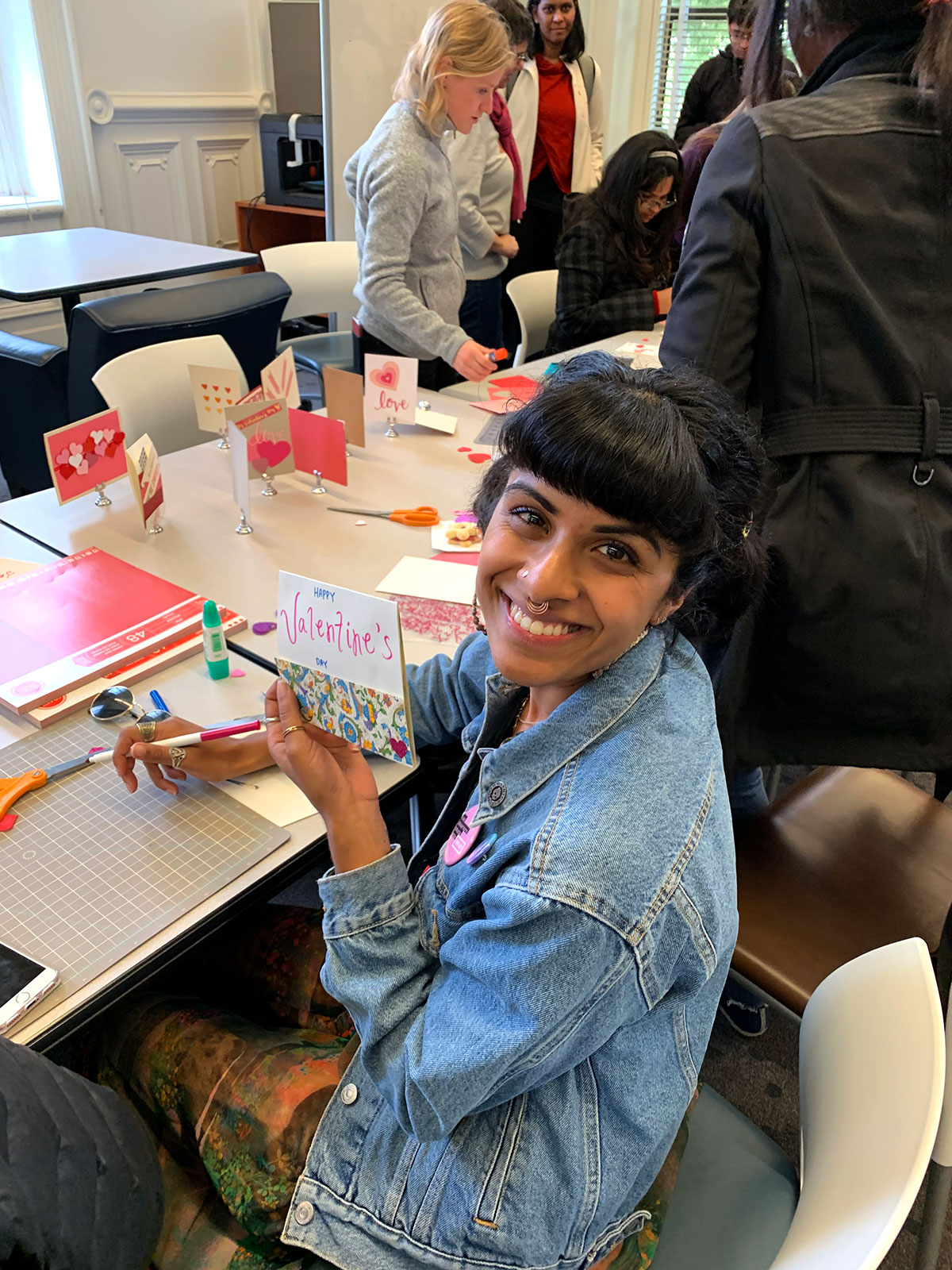Meena Kaushik graduated from the School of Information with a Master’s in Information Management and Systems in 2020, where she focused on HCI and UX Design. At the I School Meena was co-president of the Information Management Student Association (IMSA). Prior to the I School, she completed a Bachelor of Science in Cognitive Science at UC San Diego. She currently works as a UX interaction designer with Google Drive.
Why did you choose the I School?
For as long as I can remember, I’ve been fascinated by unpacking and exploring the “and” between people AND technology. This uncertain and provisional relationship between people and technology is what drove my interest in Berkeley's School of Information, and more specifically, the MIMS program. The I School encourages us to take a step back, to examine the social and ethical contexts within which technology is embedded, to question what the current and future impact of those technologies will be, and to acknowledge our responsibility in creating artifacts that are grounded in human needs rather than our tour de force — our propensity to realize the impossible.
What was your favorite class and why?
It’s hard to pick a single class — Interface Aesthetics gave me a strong eye for design, Tangible User Interfaces introduced me to a world beyond screen-based design, and Information Law and Policy was filled with exciting and provocative reflections on topics that fell in the grey space between “good” and “bad”.
One class, though, that stands out is Social Psychology and Information Technology, taught by Professor Coye Cheshire. This class covered various relevant and fascinating topics, including online communities, trust, identity, and deception. Perhaps what I appreciated the most was Professor Cheshire’s genuine enthusiasm and approachability, which fostered an environment that encouraged us to think out loud, engage in discussions, and even challenge concepts. Also, his exceptional ability to make complex theories relatable and comprehensible made this one of my favorite and most memorable classes.
What’s an information challenge that intrigues you?
I’m intrigued by explainability in AI. Explanations provide transparency, enable assessment of accountability, demonstrate fairness, facilitate understanding, and are important for calibrating trust. Most of the research in explainable AI has been focused on how to make the models themselves interpretable, but it’s unclear what types of explanations help users determine whether or not to trust an AI prediction. I initially thought that any explanation was better than no explanation, but I learned from my MIMS capstone project that certain types of explanations can result in poorer trust calibration than showing no explanation.

It’s difficult to define what’s the right amount and type of information to successfully calibrate trust between people and products. Too much information can be overwhelming, hinder understanding, and increase cognitive load. Too little information can degrade trust and confidence, and cause confusion. It’s a tricky needle to thread, and one that I continue to be inspired by.
Do you have any advice to offer current MIMS students?
Explore coursework outside your comfort zones or areas of interest because you never know what will inspire your current direction or inspire a completely new one. These courses can help you take a more holistic approach to your work, make you a better partner to your cross-functional team, or even introduce you to a completely different career path that ignites your curiosity and ambition. A professor once advised me that roughly 75% of my coursework should be directly related to my desired career, and 25% should be reserved for courses outside that scope. I’d highly recommend a similar approach — it’s truly a gift to be in a position where you can learn, just for the sake of learning.











